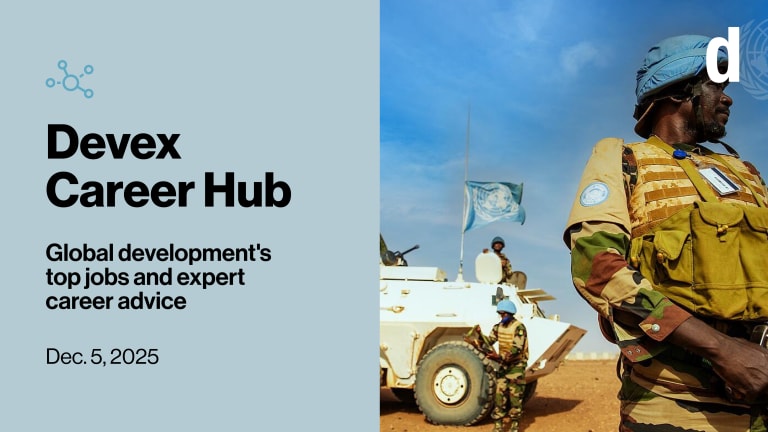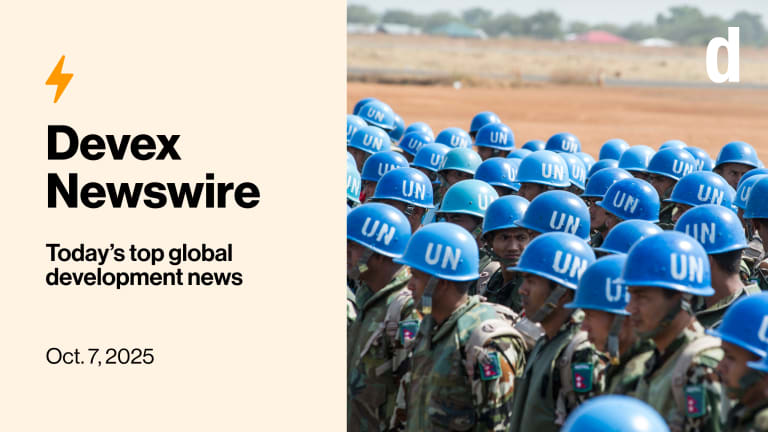
From Cambodia to Liberia, Mozambique to Côte d’Ivoire, dozens of countries have returned to peace with the support of United Nations peacekeeping operations. Every day, our peacekeepers protect hundreds of thousands of vulnerable civilians and ensure respect of ceasefire agreements while facing unprecedented challenges.
See more related topics:
► Q&A: South Sudan's UN chief on a 'nimble, proactive' peacekeeping approach
► Cybersecurity key to protecting peacekeeping and disaster responders
► DRC peacekeeping forces prepare for a worsening 2018, UN's Lacroix says
In 2017, 56 U.N. peacekeepers were killed by hostile acts, the highest number in over two decades. The blue flag does not offer peacekeepers protection against attacks by criminal or terrorist armed groups; the political solutions peacekeepers are mandated to support are often stalled or hardly moving forward. The blue helmets often operate in areas where massive number of civilians, often displaced, are at grave risk.
Unless the U.N. adapts to this new reality, the number of peacekeeper fatalities will continue to grow and our ability to protect the vulnerable will decrease. People will die, missions will fail. This cannot happen, peacekeeping matters too much to too many.
Last December, at the request of U.N. Secretary-General António Guterres, General Carlos Alberto dos Santos Cruz, a former U.N. force commander from Brazil, wrote a report on improving the security of peacekeepers. The Cruz Report candidly recommends that peacekeeping must change. We agree, and our work has already begun. Strengthening our posture, our training, and our capabilities will enable missions to more effectively perform their mandates in support of political processes. Peacekeepers must be fully trained, fully equipped, and fully prepared to act if we are to successfully confront today’s challenges.
Operational reconfiguration is not the only response to peacekeeping challenges. We have started to strategically review our operations and question our fundamental assumptions and assess our approaches, capabilities, and the conditions we need to implement our mandates. Where required, these reviews will recommend a strategic reset of our operations. We will cast a hard, cold eye on what we’re doing and see if we’ve got it right.
We are strongly committed to making peacekeeping more effective. But we cannot do it without the support and engagement of our member states. They are our indispensable partners on all aspects, from the political support our missions critically need to the provision of troops, equipment and financial resources. Member states rightly ask for the U.N. to have a stronger role in preventing and responding to violence and atrocities. However, when critical capabilities are needed for the most difficult assignments, such as air assets or special forces, offers from Member states are scarce. Our operations must be efficient and yet the drive to reduce budgets must be balanced against the costs of operations in hostile environments.
All the pieces of the puzzle must fit together and all partners will have a role to play. The Security Council, the General Assembly, the U.N. Secretariat, troop and police contributors, host states, financial contributors. and regional organizations must renew their commitments and take an honest look at whether they have provided peacekeeping with the mandates, resources, political support, mindset, and human capital that it needs to succeed.
Peacekeeping is by no means perfect or the right tool for every job and we certainly are not suited for peace enforcement or counterterrorism. But when properly mandated, equipped, and supported, peacekeeping does work. Whole populations that once lived under imminent threat now have a fighting chance for peace, thanks in no small part to the work of peacekeeping. The recent closure of peacekeeping operations in Côte d’Ivoire and Liberia is testament to the positive legacy that U.N. operations have had over the past seven decades. Going forward, it is up to all of us to ensure that future peace operations are set up to succeed.








